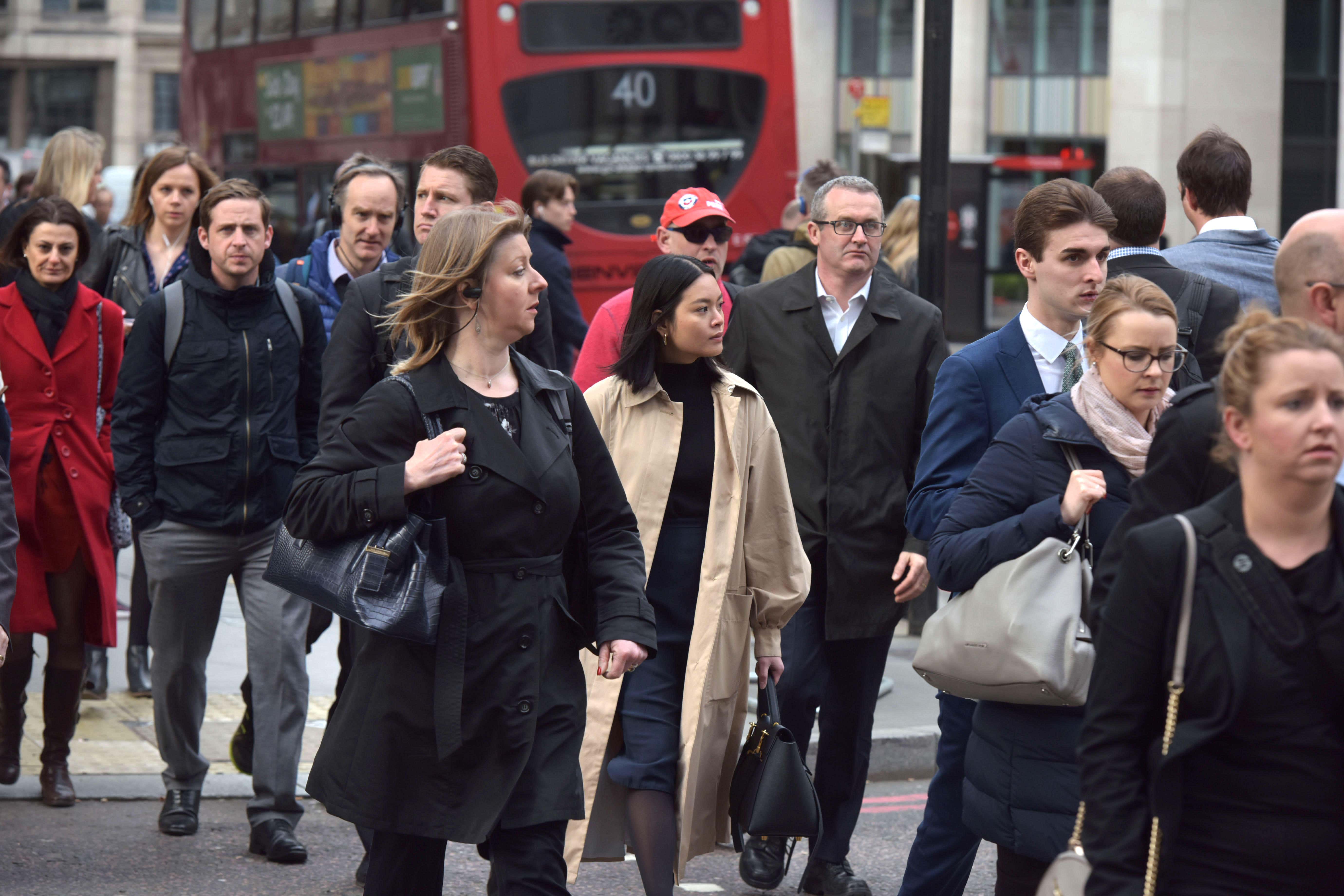Wage growth eases to lowest level in more than two years – ONS
The Office for National Statistics (ONS) said average regular earnings growth eased back to 4.9% in the three months to July.

Your support helps us to tell the story
From reproductive rights to climate change to Big Tech, The Independent is on the ground when the story is developing. Whether it's investigating the financials of Elon Musk's pro-Trump PAC or producing our latest documentary, 'The A Word', which shines a light on the American women fighting for reproductive rights, we know how important it is to parse out the facts from the messaging.
At such a critical moment in US history, we need reporters on the ground. Your donation allows us to keep sending journalists to speak to both sides of the story.
The Independent is trusted by Americans across the entire political spectrum. And unlike many other quality news outlets, we choose not to lock Americans out of our reporting and analysis with paywalls. We believe quality journalism should be available to everyone, paid for by those who can afford it.
Your support makes all the difference.UK earnings growth has fallen to its lowest level for more than two years amid further signs of a weakening jobs market, according to official figures.
The Office for National Statistics (ONS) said average regular earnings growth eased back to 4.9% in the three months to July, down from 5.1% in the previous three months.
This marked the lowest level since the three months to June 2022.
But earnings growth continues to outstrip inflation, as pay increased by 2.6% in the three months to August with Consumer Prices Index inflation taken into account.
A quarter-point cut in November still seems most likely, given signs that wage growth is moderating and increasingly dovish commentary from governor Andrew Bailey
Pay growth has fallen sharply after hitting a record high of nearly 8% in summer 2023 and the latest slowdown may give more room to the Bank of England to lower interest rates again next month.
The ONS data showed vacancies falling by 34,000 to 841,000 in the quarter to September, which is the lowest level since March to May 2021, while workers on UK payrolls also fell by 35,000 between July and August.
However, the UK unemployment rate unexpectedly eased back to 4% in the three months to August, down from 4.1% in the previous quarter, though the ONS said the estimate should be treated with caution given responses to its jobs survey.
There was a 373,000 jump in employment – the largest since records began in 1971 – taking the total number in work to 33.4 million in the quarter to August.
David Freeman, head of the ONS labour market and household division, said: “Over the last three months the number of people on payrolls has stayed broadly flat.
“The labour force survey shows a different picture and we would advise caution when interpreting changes in these data while we continue to improve survey responses.
“Vacancies have fallen once more, with most industries seeing a fall on the quarter.”
Official figures on Wednesday are also expected to show inflation falling sharply in September, with most economists expecting a drop to 1.9% from 2.2% in August thanks to falling fuel prices.
This, together with the smaller increases in pay and signs of a cooling jobs market, reinforce expectations the Bank could lower rates in November, to 4.75% from 5% currently.
Bank governor Andrew Bailey also boosted rate cut hopes recently when he said interest rate reductions could become “more aggressive”.
Jake Finney, economist at PwC UK, said the slowdown in salary increases “indicates that the softening in demand for labour is starting to weigh on wage growth”.
“A quarter-point cut in November still seems most likely, given signs that wage growth is moderating and increasingly dovish commentary from governor Andrew Bailey.”